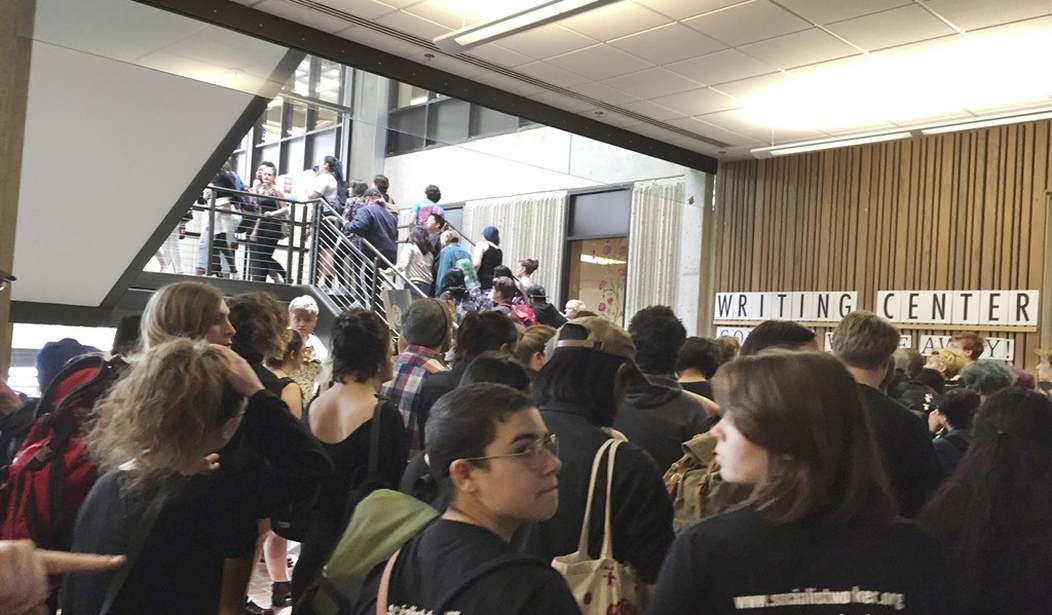The National Association of College and University Attorneys (NACUA) is holding its annual convention this week in Chicago. Inside Higher Ed reports on an interesting discussion that took place today about free speech on campus and how to protect it. Greg Lukianoff of the Foundation for Individual Rights in Education (FIRE) says campus speech is mostly under assault these days not from misguided administrators, but from students.
“For most of my career, we were usually running up against administrative overreach” — campus leaders “doing things that were a bad idea, or were sometimes well intentioned” but still flawed, Lukianoff said during a panel discussion about the tension between free speech and inclusivity on campuses at the association’s annual conference here.
Students, he said, were traditionally “the best constituents for freedom of speech.” But that’s no longer the case, with “many more students demanding that speakers be disinvited,” calling for the firing of professors or suspension of fellow students whose speech they deem hurtful, and the like.
There was agreement among the panel that what today’s students mean by “safety” on campus is not what administrators are there to guarantee:
“Students do come to college expecting to be in environment that supports them,” said [Wake Forest University’s vice president for campus life Penny] Rue. To the extent they “come to college expecting safety, I can guarantee them physical safety. But psychological safety and leaning into learning moments are not always aligned.”…
Just because it creates hurt is not enough, [University of Chicago’s Jeffrey] Stone said. “Almost all controversial speech harms people, upsets or offends them … The First Amendment does not allow you to restrict speech because it harms them.”
Some on the panel felt many students simply don’t understand the importance of the First Amendment’s protection of free speech because of a basic lack of civics education in high school. Rue, the campus life VP at Wake Forest, suggested that needed to be addressed in college as part of the curriculum. However, both Lukianoff and Stone suggested college professors may not be the best solution to this problem. Stone pointed out that many professors, “think hate speech shouldn’t be allowed on campuses.”
The discussion at this panel event does suggest there are still some adults left in the room, but increasingly they are playing defense against waves of students and some professors who genuinely don’t see free speech as a fundamental right that needs to be protected from the heckler’s veto. Even when students go off the rails, as happened recently at Evergreen College, you have administrators like President George Bridges who seem intent on making sure students suffer no consequences for their illiberal actions.







Join the conversation as a VIP Member